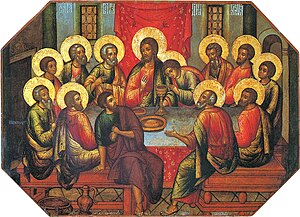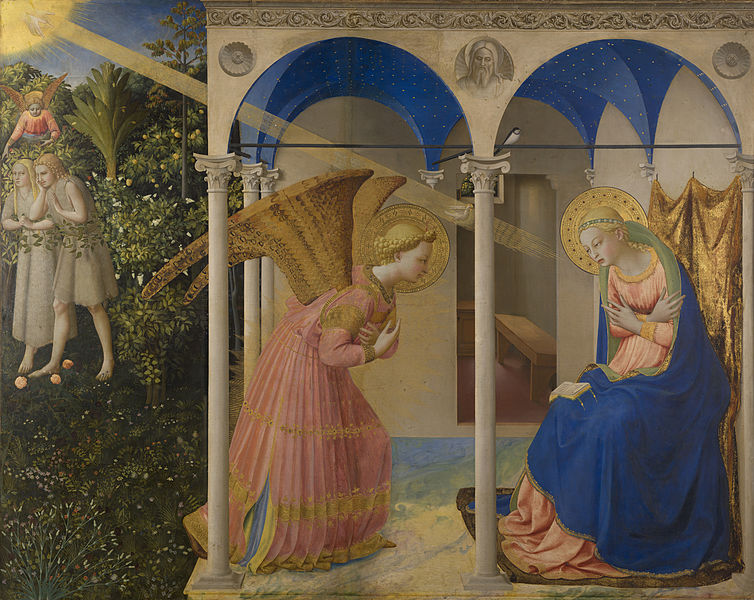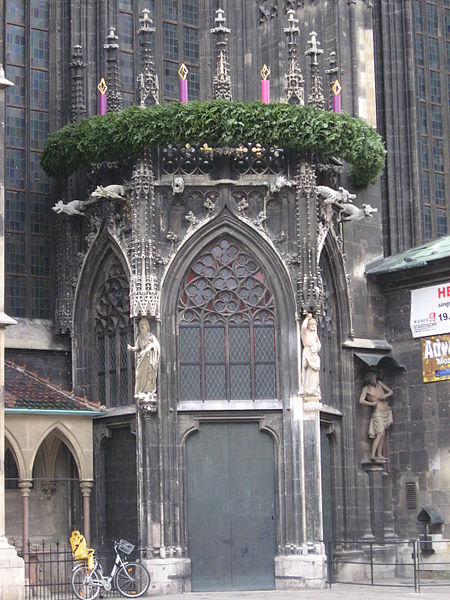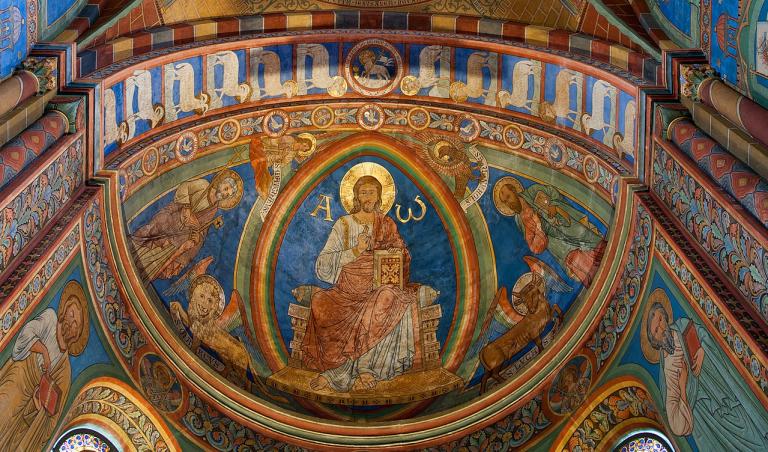David Russell Mosley

Second Sunday of Advent
8 December 2013
On the Edge of Elfland
Beeston, Nottinghamshire
Dear Friends and Family,
Since today is Sunday, the Lord’s Day, I thought I would post a section from my essay ‘Reclamation of Time’ here that deals with how we ought to view the whole week in light of Sunday. Please read and let me know what you think.
The Liturgy of the Week
From the year, then, with its seasons and major festivals, we move to the week, the unabated cycle followed no matter what the season or what celebrations or solemnities are found within it. The week centres around one specific day, called both the Lord’s Day and the First and Eighth Day. Here I wish to look at those two designations and how they affect the Christian approach to the rest of the week. Of course, central to both concepts is the celebration of the Paschal Feast, the Eucharist, the Lord’s Supper, Communion. Known by many names, and having many different theological interpretations, it is this celebration that is at the core of the liturgy of the week, both with understanding Sunday as the Lord’s Day and as the First and Eighth day.
The Lord’s Day
Sunday is the key to the liturgy of the week. It is the day of the Lord, the day on which Christians celebrate the resurrection of Christ. While this can be celebrated, and often was celebrated––depending on how one reads Acts 2.46-47, ‘And day by day, attending the temple together and breaking bread in their homes, they received their food with glad and generous hearts, praising God and having favour with all the people’––everyday. Nevertheless, a week day could be a feast day or a fasting day, but Sunday can only be a feast day. It is a day of celebration, always. This is why in the West, Sundays are not included in the forty days of Lent. The Eucharist, then, along with the celebration of the resurrection, is what it at the core of Sunday as the Lord’s Day.
In one sense, the Eucharist transcends notions of feast days and fast days. As Schmemann writes, ‘No matter when the Liturgy is celebrated, on Sunday, a Feast Day, or on any day, in the day-time of at night, it is essentially independent of the day or hour; it is not determined by them. From this standpoint the time of its cele- bration is unimportant, since what is being accomplished in the service introduces and incorporates us into a reality which is no way subject to time.’1 Nevertheless, while the Eucharist can, and should, be celebrated on other days of the week and other kinds of days within the liturgy, it belongs to Sunday, or better, Sunday belongs to it. Again, Schmemann writes, ‘The celebration of the Eucharist is placed within the framework of the liturgy of time, so that being neither bound essentially to time nor determined by it, it is ‘correlative’ of time. This is seen even more clearly in the weekly cycle, where the Eucharist has its own day––the Lord’s Day or Sunday.’2 In one sense, it is the celebration of the Eucharist which gives the Day of the Lord its meaning within the week. It is the Lord’s Day for it is the day on which we always celebrate the Eucharist. On the other hand, however, Sunday as the Lord’s Day de- fines it as the appropriate day for the Eucharist since it is the day of the week on which the Lord rose from the dead. It seemingly must be both, for as noted above, the Eucharist is not bound to time, or even to Sundays, it can be celebrated at any time on any day, and yet it is precisely Sundays that are most appropriate because the connection to the resurrection.
The First and Eighth Day
For this reason, Sunday also can be called the First and Eighth Day. It is because of the Lord’s resurrection that we can look forward, to the return of Christ, which signifies that day outside the weekly cycle, that day which is eternal present. Sunday represents the day which Amos looks forward to ‘“when the ploughman shall overtake the reaper and the treader of grapes him who sows the seed; the mountains shall drip sweet wine, and all the hills shall flow with it” (Amos 9.13).’ Ploughing happens before planting, and certainly before harvesting, just treading grapes comes after, not before, the sowing of seed. Amos shows us a picture of eternal planting and harvest. This is a picture of what Sunday is as First and Eighth Day.
Sunday also serves us within time as the first day of week. Within time, it is Sunday that begins the weekly cycle. This means that every week begins with a cele- bration of the Eucharist, the resurrection of the Lord, and the awaiting of his return. It is interesting that as the Liturgy has developed over the years, every Sunday has either a name of its own, or a name in relation to a previous celebration. The Sundays in Advent are all named after Advent; Palm Sunday is its own day; even in the large expanse of Ordinary Time after Pentecost, every Sunday is either called Proper, or related to the previous celebration of Trinity Sunday (again its own day). Sundays do not have numbers within the month, rather, when they have numbers, it is numbers associated with a Season or specific Feast or Festival. To begin each week with a name, rather than a number (even if one only thinks of it only in terms of its more eternal perspective as the Lord’s Day) must affect how the rest of the week is then viewed. Even more, Sunday as the first day of the week, as compared to Monday, could have profound implications when the week begins not with work but with wor- ship. This, according to Josef Pieper, is the foundation for celebrations at all:
And similarly in divine worship a certain definite space is set aside from working hours and days, a limited time, specially marked off––and like the space allotted to the temple, is not used, is withdrawn from all merely utilitar- ian ends. Every seventh day is a period of time of that kind: that is what a feast is, and such is its only origin and justification.3
For Pieper, celebration, even leisure, have their source in divine worship, ‘The cele- bration of divine worship, then, is the deepest of the springs by which leisure is fed and continues to be vital––though it must be remembered that leisure embraces eve- rything which, without being merely useful, is an essential part of full human existence.’4 This leads him to the conclusion that a purely utilitarian life cannot have celebrations, cannot have feasts, cannot have leisure, for it lacks the foundation for this, worship. This is what Sunday both as the Lord’s Day and the First and Eighth Day, does for us, it grounds the weekly life cycle in worship, providing us with the opportunities for work and leisure.
Sincerely yours,
David Russell Mosley
1 Alexander Schmemann, Introduction to Liturgical Theology trans by Asheleigh Moorhouse (London: The Faith Press, 1966), 35.
2 Alexander Schmemann, Introduction to Liturgical Theology trans by Asheleigh Moorhouse (London: The Faith Press, 1966), 36.
3 Josef Pieper, Leisure The Basis of Culture, trans. by Alexander Dru (London: Faber and Faber, 1952), 73.
4 Josef Pieper, Leisure The Basis of Culture, trans. by Alexander Dru (London: Faber and Faber, 1952), 76.











